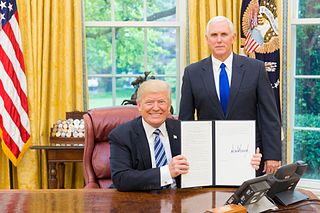
The news is full of stories about the crack down on illegal immigration to the US by the Trump administration, but there is also a powerful effort going on to reduce the number of legal foreign workers, essential for many US businesses, coming into the country.
More work visas are being denied; applicants are asked for more personal information; and approvals are being delayed more often than just a year ago. This slow strangulation of the flow of legal foreign workers hurts hospitals, hotels, tech companies and other business that rely on them and which now are having trouble filling their available jobs.
Without the foreign workers, domestic workers must work more to cover, or businesses are forced to cut back on their services. Corporate leaders are worried what the long-term effect will be on their companies of the best and the brightest from outside the US end up going to Canada or elsewhere, where engineers and programmers are welcomed with open arms.
In April 2017 Trump signed an executive order called “Buy American and Hire American,” which directed the government to “rigorously enforce” immigration laws. The order went into effect without much notice or fanfare.
Not long after the president supported a law that would reduce the number of legal immigrants in half. Introduced by two Republican senators, Mr. Tom Cotton of Arkansas and Mr. David Perdue of Georgia, the bill has not gone anywhere, yet. A few lawmakers are saying that the president has been using administrative, bureaucratic means to curtail immigration, since actual legislation to achieve that goal has been stalled.
“If they want to have a proposal on immigration, they should send it to Congress,” said Democratic Representative Ro Khanna, whose district includes parts of Silicon Valley. “The administration should engage in that conversation. To unilaterally and without any accountability change what Congress has authorized is not democratic.”